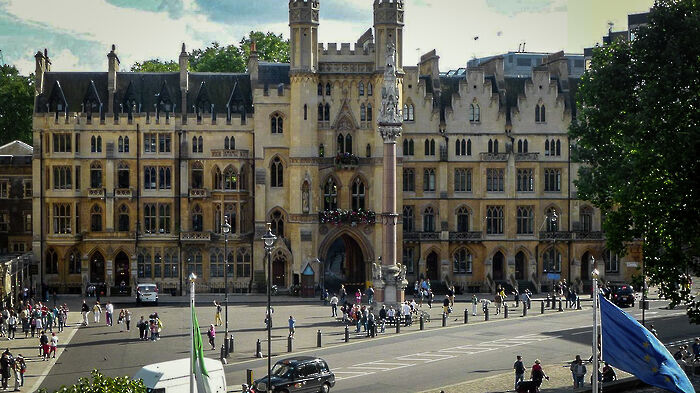Cambridge announces foundational course to widen access for under-represented groups
The programme is expected to be implemented by 2020, following criticism of the disproportionately low intake from disadvantaged areas

The University of Cambridge has announced plans today to introduce a foundation programme for educationally-disadvantaged students in a new effort to widen access.
The programme would involve an academically-rigorous transitional period for students “who have ability and potential but who have experienced educational disadvantage”, according to Graham Virgo, the University of Cambridge pro-vice-chancellor for education.
He has argued that the programme, which is to be implemented in 2020 in collaboration with Cambridge colleges, would help bring students “up to speed”, and “ease their transition to the demands of a Cambridge course”. Various models of the programme, as well as its exact length, are still under consideration.
Virgo reiterated, however, that the University will not reduce its standard A-level offer in order to attract those from educationally disadvantaged backgrounds. Cambridge has been caught between maintaining its selective applications process which it views as essential in ensuring high academic standards, and improving the educational diversity of its student body.
Cambridge’s intake from under-represented groups in higher education has come under sharp criticism, with Labour MP David Lammy branding Oxbridge colleges “fiefdoms of entrenched privilege” last year. Recent government statistics found that just 3% of the University of Cambridge’s home undergraduate intake in 2016/17 hailed from neighbourhoods with the lowest participation in higher education, placing it above only Oxford among Russell Group universities in its intake from low-participation neighbourhoods.
The University of Cambridge was the fifth lowest in the UK for state school intake last year, with state-educated students comprising 62.6% of its incoming student body. 90% of students entering higher education in 2016/2017 came from state schools. Statistics on school type for the University of Cambridge 2017/18 cohort are expected to be released next week.
A ‘foundation year’ course was introduced by Lady Margaret Hall, Oxford, in 2016, modelled after a similar scheme at Trinity College Dublin aimed at recruiting students from under-represented groups. The scheme at Lady Margaret College accepts students with grades lower than the typical Oxford offer of A*A*A/AAA, accepting A-level grades of ABB/BBB.
A recent Varsity investigation uncovered a glaring gap in access efforts in targeting students from Scotland, Wales and Northern Ireland, in which certain colleges are disproportionately responsible in outreach programmes to particular regions. Regions with lowest participation rates for higher education as classified by the government’s Participation of Local Areas (POLAR4) classification are often targeted by one or two colleges, compared to London, which is divided into 33 access areas targeted by 17 colleges.
 Comment / Cambridge students are too opinionated 21 April 2025
Comment / Cambridge students are too opinionated 21 April 2025 Interviews / Meet the Chaplain who’s working to make Cambridge a university of sanctuary for refugees20 April 2025
Interviews / Meet the Chaplain who’s working to make Cambridge a university of sanctuary for refugees20 April 2025 News / News in brief: campaigning and drinking20 April 2025
News / News in brief: campaigning and drinking20 April 2025 Comment / Cambridge’s tourism risks commodifying students18 April 2025
Comment / Cambridge’s tourism risks commodifying students18 April 2025 Comment / Does the AI revolution render coursework obsolete?23 April 2025
Comment / Does the AI revolution render coursework obsolete?23 April 2025







